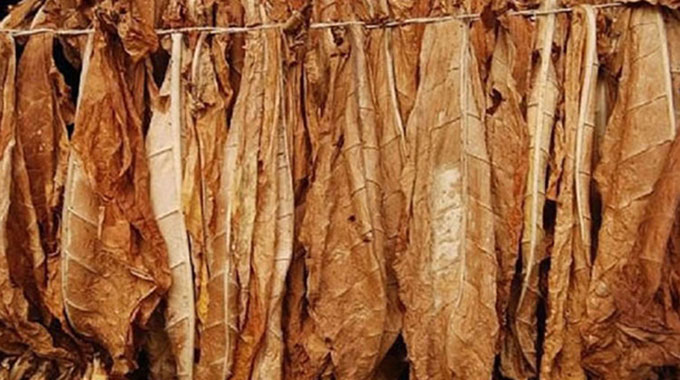Sadc tobacco industry vs child labour

Sifelani Tsiko Agric, Environmental & Innovations Editor
The anti-tobacco lobby is getting aggressive and vicious and SADC countries need to take urgent steps to fight child labour and other rights abuses on tobacco farms dotted around the major tobacco growing parts of the region. As a region we need to get together to save the tobacco industry which is a major source of revenue for most countries that include Zimbabwe, Malawi, Mozambique, Tanzania and Zambia.
A report titled “Bitter Harvest” by the Human Rights Watch (HRW) has escalated the anti-tobacco lobby by claiming that children as young as 11 were working on tobacco farms in Zimbabwe, often in hazardous conditions, to earn school fees or supplement the family income.
It further said that workers were exposed to nicotine and toxic pesticides and suffer symptoms consistent with poisoning such as nausea and vomiting.
The claims, whether real or imagined, need to be investigated so that SADC governments can act on them to minimise the damage that comes with such claims against the tobacco industry.
A few months ago, a coalition of five Southern African countries met in Malawi to discuss ways to address the growing global anti-tobacco lobby which is imposing tighter regulations and heavy taxes on the golden leaf, a major source of export earnings for the countries.
The countries calling themselves “T5” — a grouping of tobacco industry stakeholders from Malawi, Mozambique, Tanzania, Zambia and Zimbabwe — gathered in the Malawian capital, Lilongwe, to share experiences and explore strategies to save this strategic industry which is increasingly coming under threat.
This coalition must step up campaigns to enlighten the world about its tobacco production systems to minimise the impact of bad publicity coming from the strong anti-tobacco lobby groupings.
If this coalition doesn’t speak out with a stronger voice, the SADC tobacco industry will collapse and condemn millions into poverty.
The HRW commissioned some researchers to investigate the abuse of children on tobacco farms in Zimbabwe.
The report is quite damning and captures the views of children some as young as 12. We all know that the anti-tobacco lobby group is well-oiled and can ooze information that can have serious ramifications to the survival of the tobacco industry.
Just recently, the US government suspended all imports of tobacco from Malawi over child labour allegations. According to media reports, the ban followed the news that human rights lawyers are bringing a case against British American Tobacco (BAT) in a London high court over child labour allegations on Malawi’s tobacco fields.
Lawyers are acting for nearly 2 000 claimants — children and their parents — and expect that up to 15 000 will join the case.
“US Customs and Border Protection (CBP) on Friday issued a Withhold Release order on tobacco from Malawi, meaning shipments arriving in the United States will be detained at the port of entry,” a UK-based publication reported.
“Importers will have to prove the tobacco is not produced with labour prohibited under US law to have the shipment released.”
Big tobacco companies now have to prove that that their tobacco does not include tobacco from Malawi that was produced with labour prohibited under US law.
Human rights and anti-tobacco lobby groups feel strongly that this action by the CBP will force companies to deal with child labour allegations on the ground in Malawi and the entire SADC region.
Zimbabwe and most other countries are not immune to the CBP sanctions, if they do not get their act together.
The T-5 coalition must push all big tobacco companies to fund programmes that will reduce child labour cases in the region.
Their sustainability programmes must be visible and prominent to demonstrate the region’s commitment to fight child labour.
Everything is working against the T-5 coalition and the International Labour Organisation of the United Nations says child labour in tobacco is increasing, not reducing.
Governments and labour unions must target to improve the quality of farmers’ lives and support their children’s education.
Most of the countries under the T5 coalition are increasingly finding it difficult to battle the anti-lobby campaign which is calling for the imposition of tighter regulations and heavy taxes on their tobacco industries — which are a major source of foreign currency and major employer.
Anti-tobacco regulations are tightening over public-place smoking, point-of-sale communication and display, graphic health warnings and plain packaging among other restrictions.
The tobacco industry is a complex web with various competing interests of both African and global multinational corporations. Multinationals still earn billions from tobacco produced by African countries.
It’s a major cash cow for the SADC countries.
Despite a drought that ravaged Zimbabwe in the 2018/19 cropping season, the country still managed to produce a record-breaking tobacco output, reaching an all- time high of 258 million kg.
This year’s output is higher than the previous record of 252,5 million kilogrammes recorded in the 2017/18 farming season.
Tobacco is a major cash crop for Zimbabwe and it generates an average US$1 billion annually helping the country to import fuel, pharmaceuticals and other key industrial raw materials.
Burley leaf from Malawi makes up 6,6 percent of the world’s tobacco exports and accounts for over 70 percent of Malawi’s foreign earnings.
Tobacco sales generate US$165 million per year for Malawi, with tobacco making up 53 percent of the country’s exports.
Last year, Zambia produced 31 million kg of tobacco while production of the golden leaf declined from 105 million kg in the 2013/2014 period to less 50,5 million kg in 2017/2018 owing largely to low demand of the commodity in international markets following anti-tobacco global campaigns.
Mozambique produces nearly 100 000 metric tons of tobacco a year. Tobacco growing makes up a small fraction of agriculture in Mozambique, with only 0,15 percent of agricultural land devoted to tobacco cultivation.
China is a major buyer of tobacco produced in these five countries which are aiming to boost tobacco production in the short term despite the intensity of the anti-tobacco lobby campaigns.
To survive the wave after wave of bad publicity and public legislation, from plain packaging to increased taxation, the T-5 coalition must promote sustainable tobacco production processes that can help counter the negative effects of unbalanced and poorly informed tobacco control legislation adopted by countries which import tobacco from our region.
T-5 countries must improve farm labour rights and the welfare, health and safety of children in their member states.
Leaf operations must also strive to actively participate in all sustainable tobacco production systems that meet ILO standards that cover child labour and farm worker wages.









Comments